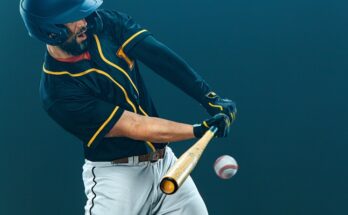For Clayton Kershaw, Doom Threatens but Never Arrives in Dodgers’ Game 2 Win
Clayton Kershaw is not Clayton Kershaw(TM) any more. At the same time, he is neither bad nor finished, and his 2020 was a resurgence previously hard to imagine for a 32-year-old man with 2,300-plus innings on his arm and a wobbly back that shifts and grinds like tectonic plates. He made 10 starts and threw 58.1 innings and struck out 62 batters and posted a 2.16 ERA, a hair off his 2.13 mark in 2016, the last year when he was really, truly the best pitcher in baseball. Since then he’s been more passable imitation of himself than the genuine thing, but this season was proof that he could adjust and thrive despite a fastball that’s past its peak.
So it was against Milwaukee and so it looked against San Diego. For the first five innings, Kershaw stuck to his plan: 19 first-pitch fastballs out of 24 offerings, 45 fastballs total averaging 91.7 mph and peaking at 93.6, lots of two-strike sliders. And for five innings it worked, aside from a Wil Myers RBI double in the second on a slider that caught too much of the plate; otherwise, weak contact and strikeouts abounded.
Yet in the sixth, trouble. The first batter of the inning was Manny Machado, who managed to pull his hands in and whip his bat around on a slider diving into his shins to send it screaming at 108 mph into the left-field stands of Globe Life Park. A 4-1 lead became 4-2. The very next batter, Eric Hosmer, got a thigh-high fastball over the plate that crept in at just 89.7 mph; it, too, vanished into the night, clearing the fence in right-center to make it 4-3.
Here in previous years was the breaking point, the moment where the Clayton Kershaw Postseason Narrative would wake up and start raining punches on the man who from April through September was the best pitcher on earth and in October turned into the left-handed Jeff Suppan. All the ingredients were there: declining velocity; a third time through the order; a building pitch count. It didn’t take much to imagine the coming sequence of events: a couple more hits; Kershaw shuffling off the mound leaving runners on; a reliever letting those inherited runners score almost immediately; endless shots of Kershaw on the bench with his head in his hands.
But it didn’t happen. With little anxiety and not much effort, Kershaw got the next three hitters in order. His night was over after that, and though the Dodgers’ bullpen — aside from the Cardinals, his greatest and most persistent postseason foe — bent so far it practically curved in protecting that lead, it never broke. The moment never came to pass.
It might seem strange to focus on Kershaw in a game that devolved into a nuclear-powered tizzy once he left. The highlights from this game won’t be of anything Kershaw did (aside from the homer he gave up to Machado, which prompted an emphatic bat toss and some loud expletives from the Padres’ $300-million man). They’ll be of Cody Bellinger robbing Fernando Tatis Jr. of a go-ahead homer with a ludicrous leaping catch at the wall in the seventh, and of Brusdar Graterol flinging his hat and glove in ecstasy, and of Machado barking at his former teammates, and of the Padres rallying in the ninth and knocking an increasingly shaky Kenley Jansen out and loading the bases against the erratic Joe Kelly only for Hosmer to roll over a fastball for a game-ending groundout to second. The Dodgers are up 2-0 in this best-of-five series and in position to clinch yet another NLCS trip on Thursday, but Kershaw played a relatively minor part in the drama that got them there. Per our math, his Win Probability Added in his six-inning effort was exactly 0.00; he had less of an impact in that metric’s eyes than Padres middle reliever Dan Altavilla.
But at the same time, as Kershaw goes, so go the Dodgers, because this rotation needs him to be at his best. There are no off-days during this series or the next, if Los Angeles advances, limiting just how much Dave Roberts can rely on his bullpen. Walker Buehler has blisters that won’t go away, as he admitted during an in-game interview on the broadcast. The pitchers remaining in the rotation are Tony Gonsolin and Julio Urias (and maybe Dustin May), and while they are talented and young, they’re not the horses that can carry the heaviest load. That responsibility belongs to Kershaw, and as such, he lives on the knife’s edge in every start.
It’s an unfair burden to bear, but it’s the reality of being an ace even if you’re not The Ace anymore, and it’s a burden that won’t disappear until Kershaw and his teammates are hoisting the Commissioner’s Trophy. On Wednesday night, he shook off the moment, and in the process, he took one big step toward letting all that weight slip from his shoulders.


